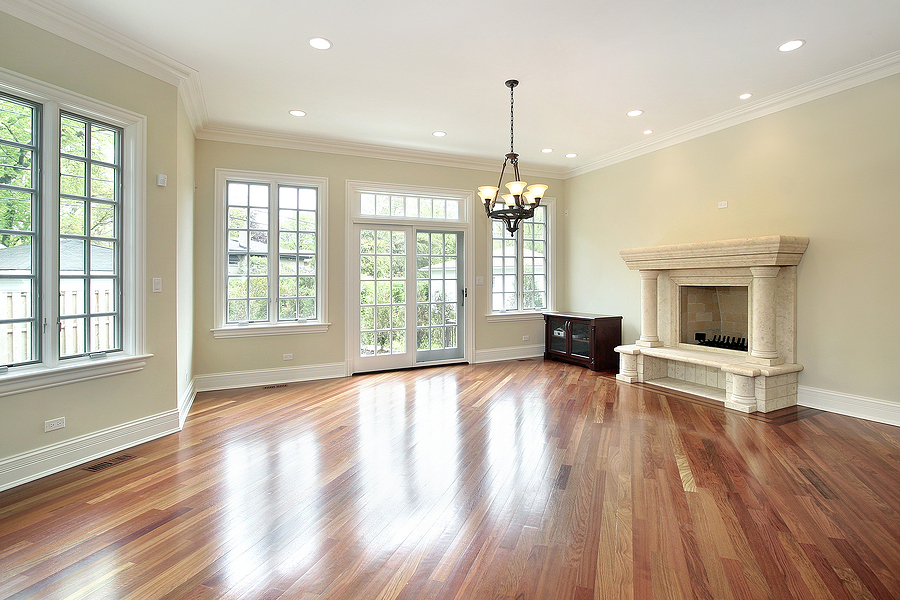What are the Pros and Cons of Hardwood Flooring?
June 30, 2020

Hardwood flooring is always considered an upgrade as far as builders are concerned, and real estate agents are always quick to point them out as a great selling point. When it comes to choosing flooring options, hardwood may seem like the best choice due to these reasons alone. But, as with any decision, it’s important to do your research.
Advantages of Hardwood Floors
When cared for properly, hardwood floors are durable and will last for a long time. Homes that are over 100 years old can still have their original floors. General care to maintain the beauty of hardwood floors is not complicated. Sweeping or vacuuming is usually all that’s needed, and occasional mopping with a wood cleaner.
Hardwood flooring is a big selling point for homes on the market. Homes with hardwood flooring tend to sell faster and buyers will pay a premium. This is in part due to the timeless look. Hardwood floors are classic and compliment just about any interior design plan. Hardwood flooring will work with both traditional and modern décor and can be stained a variety of colors. Another reason hardwood floors are at the top of most home buyer’s checklists is because of its durability. If you buy a home with hardwood floors you know that completely replacing the flooring probably won’t be something you will ever have to do.
Drawbacks to Hardwood Floors
Hardwood flooring is expensive-but remember, it’s an investment that adds value to your home. The most inexpensive hardwood flooring is usually around $3 per square foot and can get up to over $12 per square foot for some varieties. For larger spaces, this can get costly very quickly. You’ll need a subfloor underneath, and installation can be a big job. Hardwood floors can be scuffed and scratched and will need to be refinished periodically. High traffic areas, especially with pets and children, will show damage quickly. Hardwood is subject to water damage and any spills need to be attended to right away. Finally, hardwood can be noisy. If you install it on an upper level, be aware of the sound below.
Where Do Hardwood Floors Work Best?
Hardwood flooring is best in bedrooms and living spaces. These rooms are not prone to moisture and water damage is less of a risk. Kitchens and bathrooms are places to be cautious when considering hardwood flooring. The risk of water damage is high, so if you choose hardwood flooring for these spaces you’ll have to take extra measures to make installation practical. When installing hardwood flooring on the upper levels, it’s a good idea to lay area rugs down to muffle the sound and add warmth to the rooms.
When it comes to hardwood flooring, speaking with an expert is always the right place to start. They can give you advice, help you decide if hardwood flooring is right for you, and give you advice on how to choose the best hardwood flooring to compliment your style. Contact Community Renovations for more information about installing new flooring in your home.